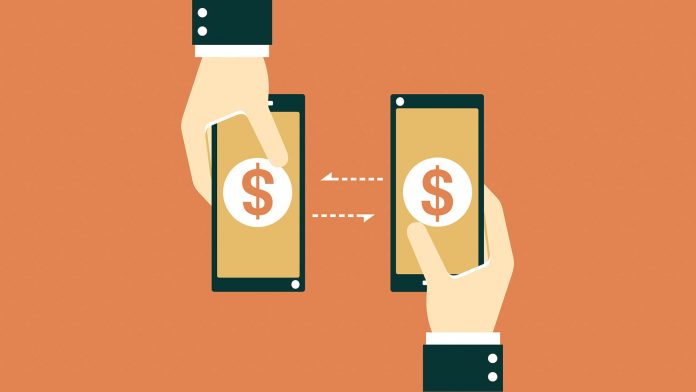Most people nowadays use cashless payments. No wonder, after all, this is particularly convenient and involves the least amount of effort for the bank customer. Even if many are calling for cash to be abolished entirely, this request is not yet realistic at this point in time. For example, many small retailers only allow EC card payments for a certain amount. In this article, we read about How to wire money?
Apart from that, there are still people who do not have their own checking account and are therefore dependent on cash. Since these people cannot make a traditional transfer, you must be able to deposit cash in the banks in order to send it to third parties. Our article tells you how this works, if there are any fees and if there are alternatives.
How to deposit cash into someone else’s account
Probably the easiest method to send money to a third person is a classic transfer from account to account. However, sometimes this is not possible. Be it because the transferring person does not have their own account or perhaps does not want the transaction to appear on an account statement. In this case, many banks offer the option of depositing cash into a third-party account.
This is how you proceed to deposit cash into a third-party account:
- Find a bank of your choice.
- Fill out the payment slip, which must contain the name of the recipient, the amount, the purpose, and the IBAN and BIC of the recipient.
- Hand in the payment slip at the counter.
- The bank posts the amount to the recipient’s account.
- You pay a fee that is individually determined by the bank.
Remember: not all banks offer this service. If the bank of your choice refuses to accept a cash deposit to a third party, simply try another bank. Always check the posted statutes beforehand. If a “cash deposit in favor of third parties” is possible here, the bank must also offer it. Some banks only allow this service for deposits to accounts at this very same bank.
Costs: Are there always fees for a cash deposit into a third-party account?
Unfortunately, it is very costly to deposit cash into someone else’s account. This is a cash transfer which, depending on the bank, can cost between € 5.00 and € 20.00. Some banks charge a lump sum per transaction, while others charge a certain percentage of the amount deposited. The fact is that this type of deposit is very expensive and is therefore not a solution in the long term.
Why are there fees for cash transfers?
A cash deposit from people who are not customers of the bank always involves a lot of work. Accepting the money at the counter is not enough. The money must then be transferred to an interim account in order to be credited to the recipient. The bank must also keep the relevant payment slips for a certain period of time. This is of course associated with costs for the bank, which it tries to compensate by charging the customer. As a customer, you are left behind, but on the other hand, you have a practical option to transfer money from A to B without your own account being involved.
Identification requirement: The paying person must identify himself or herself from certain amounts
The Money Laundering Act states that the identity of the person paying must be proven for cash transactions of € 10,000 or more. Apart from that, a special form has to be filled out, which gives the bank and the tax office further information about this transaction.
If you would like to make a cash deposit into the checking account of a third party at a bank, you must identify yourself with a value of € 1,000 or more.
Alternatives to cash deposits to wire money
There are a few alternatives available to you to avoid cash transfers and the associated costs.
Payment with Bitcoins without an account
Bitcoins are transferred from PC to PC without having to turn on a bank. However, since you have to buy bitcoins beforehand, you will need a credit card. But this is the only downside because when you are in possession of bitcoins, you have internet currency that is worth as much as normal cash. In the best-case scenario, the recipient also prefers this form of payment. You can save yourself high fees for cash transfers.
Use of a second account to wire money
If you just want to avoid the booking being visible on your regular account, you can use a second account. With a second account at a bank that allows free deposits, you are on the safe side. Have the cash credited to your account and then transfer it to the beneficiary.
Transfer by family members to wire money
A family member may have an account with a bank that allows free deposits. In that case, you can make an agreement that the family member pays the amount into their account and then transfers it to the third person. With such agreements, however, keep in mind that a written agreement is always advisable. It is not uncommon for family members and friends to quarrel in cases like this. Avoid this by writing everything down from the start. In the worst-case scenario, you are on the safe side and have something in hand to prove what agreement has been made.
Conclusion
For a long time, cash payments to a third-party account were possible without any problems. Since politicians are toying with the abolition of cash and stricter money laundering laws now also apply, many banks no longer offer cash transfers in favor of third parties.

If you want to transfer money to a third-party account, you have to bear high costs and also identify yourself for an amount of € 1,000 or more. If you do not have your own account or do not want to see the transfer on your regular account, you have to accept considerable inconvenience.
Also read: how to get rid of pimples
